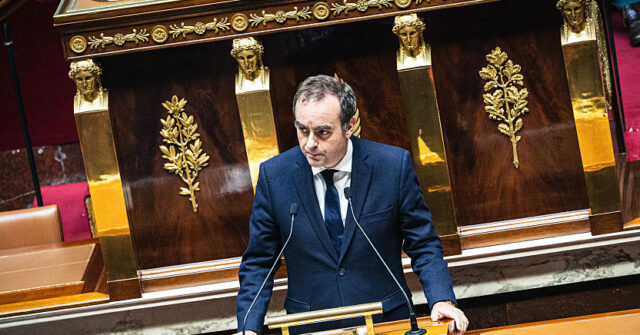If things don’t go well today France is heading to a “serious institutional crisis” and the collapse of the government is “inevitable”, the French Prime Minister said as he attempted to kick-start the state again.
France’s constitutional crisis is rolling on and threatening ever more to end the Fifth Republic, with President Emmanuel Macron’s attempt to preside over yet another new government in no better position to survive than the last, which managed just one day.
Macron had re-appointed Sébastien Lecornu’s to the office of Prime Minister again on Friday after his first period in office lasted just 27 days, and his attempt to build a government of ministers collapsed after 12 hours. Now Lecornu is trying again, warning before an address to the national Parliament on Tuesday afternoon that if “things don’t go well this week, we are heading towards a serious institutional crisis. Dissolution will become inevitable”.
Indeed, the latest French government was only unveiled last night and all talk in France is already on ‘censure’, the Parliamentary procedure to bring it toppling down. Marine Le Pen’s National Rally is already dedicated to giving its votes to the motion, which would rely on support from the left to pass.
The Socialists, a small faction in the French Parliament whose votes are all that’s needed to bring the government down have said they will join that censure process tonight if Macrons’ man Lecornu refuses to buy their support by postponing pensions reform. This demand strikes at the very heart of France’s political crisis and the friction between those who want to keep the state solvent, and those who insist on protection social programmes and payouts.
Lecornu said this afternoon he would indeed suspend pensions reform, but other political factions pressured The Socialists to vote against the government and bring it down anyway. A spokesman for the hard left coalition said Macron rolling the dice on getting a government yet again was merely an act of “temporization” — buying time for himself — and should therefore be rejected.
Lecornu warned giving in to the pension rebels meant cash savings of billions of Euros would be needed elsewhere, lest the French state’s deficit grow even larger. As things stand, the deficit is close to six per cent and the government’s debt is well in excess the value of the whole national GDP.
While Macron burns through endless Prime Ministers and governments in a bid to, against all odds, achieve a working cabinet that can actually survive and pass legislation, he absolutely insists the source of the chaos does not lie with President Macron. Indeed, according his his own telling of events, it is everyone else’s fault.
Rejecting widespread claims that France needs fresh elections to break the deadlock, Macron insists upon his personal political mandate being inviolate, that he is above the political fray. Blaming everyone else, Macron said this week: “The political forces that have instigated the destabilisation of Sébastien Lecornu are solely responsible for this chaos.”
This isn’t a view shared by all, by any means, and Macron’s gamble on shoring up his own position last year by calling a snap national election is widely credited with the paralysis in Paris. As previously reported:
At the heart of the political turmoil in Paris today is Macron’s ill-advised decision to call for snap legislative elections in July 2024 in the wake of his party’s trouncing in the EU Parliament by Marine Le Pen’s National Rally the month prior. With the populist party having come out on top of the first round of voting and threatening to take control of the National Assembly, Macron made the Machiavellian calculation of forming a strategic voting pact with the leftist New Popular Front to keep Le Pen and her allies from taking power.
Yet all these manoeuvres managed to achieve was a three-way split in the parliament, which has effectively made governing functionally impossible, with no faction having the requisite votes to pass a much-needed budget as the country stares down the barrel of a full-on debt crisis.
Read the full article here


